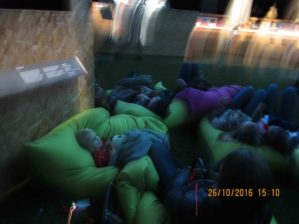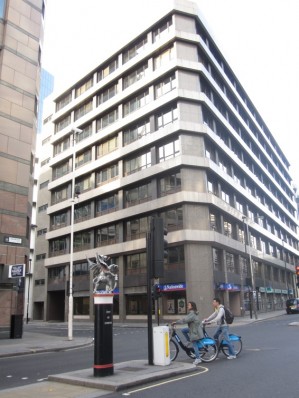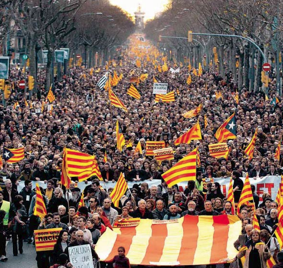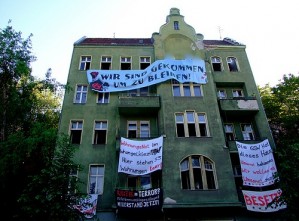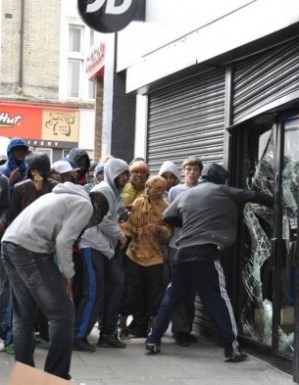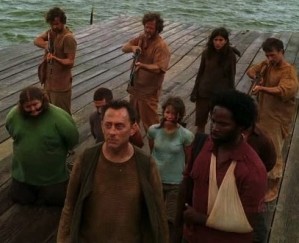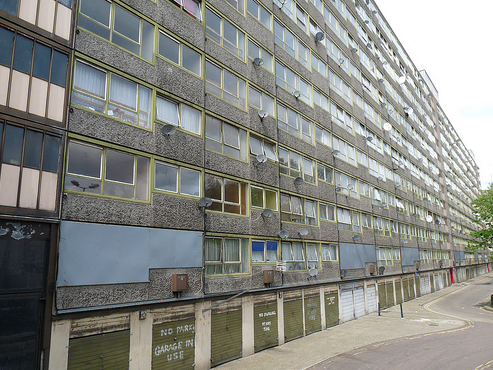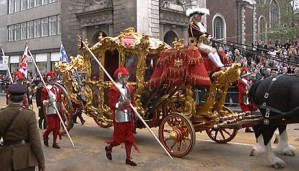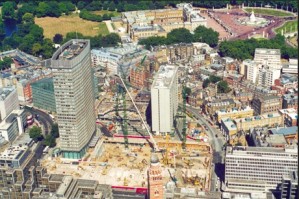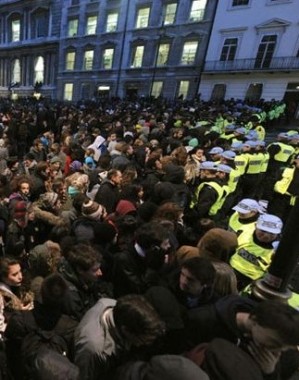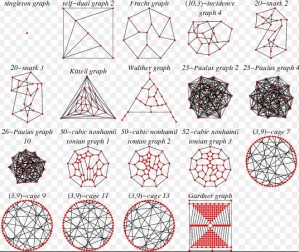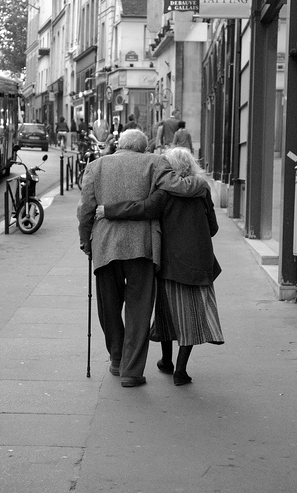-
Revolution at the V&A (p6)
“Never doubt that a small group of thoughtful committed citizens can change the world” This quote from the nineteen-sixties by Margaret Mead was greeting visitors to the Revolution exhibition, currently at the Victoria and Albert Museum in London. It is an encouraging thought in our times of globalisation, dominated by corporations with turnovers well above […]
-
OC 50: East London Transformations
After the games Now that the London Olympic Games have closed their doors and a fence has been re-erected around the whole site it may be a good time to reflect on what urban transformations lie in stall for the East End. The third European Urban Summer School (EUSS), initiated by the Association of European […]
-
Open Cities 30 Steely Closure
Culture of fear Is it not ironic that a city which broadcasts its openness worldwide is the first to surround itself with a ring of steel? Already one of the most ‘surveilled’ city in the world, the City of London is adding ring after ring of enclosures, thereby turning into a pioneer 21st century fortress. […]
-
Open Cities 23 Public Realm – Civic Behaviour
A lot has been written about how to design the public realm to contribute to city openness with more or less environmental determinism in mind. CABE’s work belongs to this knowledge base. It ranges from the very physical “Adapting Public Places to Climate Change” to “Open Spaces Strategies” with focus on green spaces for deprived […]
-
Open Cities14 Minaret Controversy
Changing city skylines The people have decided: no more minarets in Swiss cityscapes. The question is how and why. The controversy over minarets has to be put into the context of who is shaping city skylines, with what artifacts, for what purpose, with whose legitimacy. Ever since cities have been built they express the power […]
-
OC 55: “Legalities of Space”: from squatting to tolerated occupation
Right to land Controversies over ‘legalities of space’ affect a wide variety of peoples. ‘IdleNoMore’ supports the struggle of first nations for what they believe to be their immutable right to their land and their way of life (see the previous post OC 54). Such controversies take many different forms in diverse circumstances. On […]
-
OC 40: Anatomy of Riots – Snapshots
Causes and remedies Riots in Britain, demonstrations to end oppression in the Middle East, sit-ins against the excesses of capitalism worldwide have stirred up the establishment, from the political classes to the popular science writers. They all grapple for explanations and corrective interventions. Yet, the jury is out on the evidence base. When young, media […]
-
Open Cities 26 Who Is The Other?
When openness issues are unravelling themselves in other countries they can concentrate the mind about openness at ‘home’. A snap shot across media debates during a journey through Europe may illustrate this mirror function. Snapshots of ‘the other’ in Europe While in the UK, the political coalition is trying to reconcile a perceived immigration surplus […]
-
Open Cities 17 Mixed Communities – Openness or Myth?
Mixed communities could be construed as an indicator of an open city. This presumes a definition of mixed communities. The Future of London’s Social Housing was discussed at a seminar held at the London School of Economics on 19 February 2010. This offers an opportunity to explore the contribution of social housing to mixed communities […]
-
Open Cities 4 Openness and Closure
Open Cities 4 Openness and Closure Welcome to open cities Bright sunshine, holiday time. Many of us plan to take off somewhere to the beach, the mountains, the countryside. Yet, many city dwellers choose to visit other cities. They enjoy to displace themselves for a short while, physically and mentally, to experience another place, immerse […]
-
OC 53: Stag Place Revisited
Urban transformation: for better or for worse: – then? In the early nineteen seventies, I asked my post graduate students to explore two areas of central London of equal size, and observe their fabrics and how they were used to identify what interventions they could propose as aspiring urbanists to improve them. One area was […]
-
OC 39: Openness and the Fear Industry
Now that the tears over 9/11+10 are drying up, what happens to the ‘fear industry’? Fired by the war on terror it is doing really well. The surveillance and anti-terror industry has mushroomed and is well under way of becoming too big to fail. In the name of war on terror, states have restricted civil […]
-
Open Cities 24 Identity as closure?
What is stirring the minds and hearts in Switzerland is fascinating. The centre of attention is an initiative by a politician, Christoph Blocher, a rich industrialist who is making his money with factories staffed by foreign female labour. He is head of the ultra right wing party, the Swiss People Party (SVP/UDC), which is relentlessly […]
-
Open Cities 16 Openness and Age
‘Open Cities’ evoke many implicit assumptions. The tend to imply some idea of ‘goodness’. In the most general terms open cities are assumed to be sustainable, to provide a harmonious setting for physical, social, environmental and to some extent economic wellbeing to prosper, also for future generations. In physical terms open cities imply access to […]

